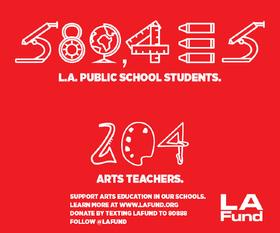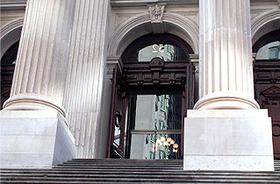Last September, New York Mayor Michael Bloomberg announced plans to revamp the teacher tenure program in his city. This summer, Mayor Bloomberg made good on his promise, when the number of teachers receiving tenure was dramatically lower than the previous two years. While some are applauding the move, others, like the teachersŌĆÖ union for the city, are voicing serious concerns over how the tenure decisions were made. WeŌĆÖll take a look at both sides of the issue, as well as the potential impact these new tenure procedures will have on both teachers in the city and the quality of New York education overall.
More Teachers on ŌĆ£HoldŌĆØ
According to a report in the Seattle Times, 5,200 teachers in the city of New York were awaiting decisions on tenure this year. Of that number, 58 percent were granted tenure and 39 percent had their tenure decisions delayed for another year. About 3 percent of teachers were denied tenure outright. These numbers vary considerably from last year, when 89 percent of teachers were granted tenure, and the previous year, when 94 percent received it.
Bloomberg explained to the Seattle Times that for the teachers who were told to wait another year for a tenure decision, it was the cityŌĆÖs way of telling them that ŌĆ£while they have shown progress, they are still developing as teachers and need to improve.ŌĆØ Teachers that did not receive tenure this year will have access to additional training and development to help them reach the city standards in a timely fashion.
This year, fewer teachers were actually denied tenure outright than in previous years, despite the more rigorous evaluation guidelines. Last year, about 3.3 percent of all New York teachers were denied tenure. This year, the number is down to 2.9 percent. This means that more teachers are given the opportunity to seek out the training and support they need to improve their job performance, through resources that are readily supplied through the New York Department of Education. Bloomberg has also said that his new plan will facilitate layoffs of the worst teachers in the city ŌĆō those who are denied tenure and donŌĆÖt have the opportunity to improve performance.
Reasons Behind the Change
Bloomberg announced the tenure changes at the beginning of the last school year, explaining that the city had been granting protection to teachers after just three years of service, regardless of performance ratings. Once a teacher receives tenure, he or she is unable to be fired from the district without an official administrative hearing. The long process involved in this procedure has left many bad teachers in schools teaching students, according to some critics of the previous tenure policy.
Bloomberg agreed. He was reported in the Seattle Times as saying, ŌĆ£Tenure is now something that has to be earned.ŌĆØ
To that end, the city has implemented evaluation procedures to help determine whether teachers have met the city standards to qualify for tenure. Included in this evaluation are observations of the teacherŌĆÖs classroom practices, evidence of student learning and the teacherŌĆÖs contributions to the school community. The evaluation also includes student test scores, although the teachersŌĆÖ union opposes this practice. Student performance makes up about 40 percent of the overall teacher rating.
Teachers are rated according to four categories; ŌĆ£highly effective,ŌĆØ ŌĆ£effective,ŌĆØ ŌĆ£developingŌĆØ or ŌĆ£ineffective.ŌĆØ Only those teachers that fall into the top two categories, and have been rated there for two of their three years in a row, can be recommended for tenure under the new guidelines laid out by Mayor Bloomberg. According to the , the pilot program was tested out at 20 of the cityŌĆÖs schools. About one in every five teachers fell into the bottom category.
New York Schools Chancellor Dennis Walcott agrees with the practice. Walcott told the Huffington Post tenure ŌĆ£has been taken for granted.ŌĆØ Walcott also told , ŌĆ£Teachers are saying, some of them, ŌĆśthank you,ŌĆÖ because as the mayor indicated, teachers were passed along and they didnŌĆÖt have any idea of their performance level.ŌĆØ
More Transparency Needed?
However, not everyone is delighted with the change to tenure procedures. The United Federation of Teachers said teachers should not be faulted for performances that fail to make the grade. In some cases, lower performance ratings could have been attributed to changing schools, which would leave their records for the year incomplete. The lower ratings could have also been due to the fact that principals spent insufficient observation time in the classrooms, so they were unable to get an accurate idea of the teachersŌĆÖ abilities.
UFT Secretary Michael Mendel said in a statement reported at NY1, ŌĆ£We have serious questions about how the DOE reached these conclusions and concerns that they failed to base these decisions on pedagogy or job performance.ŌĆØ The UFT has filed suit against the Board of Regents and state education commissioner in regards to a teacher evaluation plan that weighs so heavily on student performance, rather than teacher performance.
Michael Bloomberg responded to the concerns of the teachersŌĆÖ union with a brief statement, saying, ŌĆ£They can call it anything they want. This is what we are doing.ŌĆØ
During the past academic year, the city of New York employed nearly 75,000 teachers who were responsible for educating more than a million public school students. This year, the city has not announced any teacher layoffs. However, the 2,600 teachers that have either retired or resigned from the city will not be replaced at this time.















